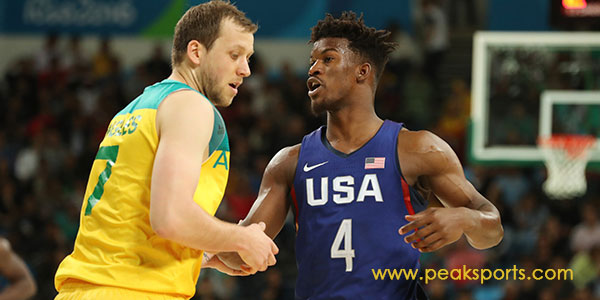
Learning from Defeat in Sports
Do you feel losses have an upside at all? Can you turn an loss into a benefit, or does a loss become a blow to your confidence?
A loss or under performing can feel frustrating for some athletes. An unexpected loss or an embarrassing performance can practically erase an athlete’s confidence?
Why does one event have such an overwhelming effect on confidence? It all comes down to perspective or the meaning you assign to a loss. You can interpret a poor performance as having a lack of talent or inability to perform in the heat of competition.
Can a Lose Help You Learn?
Or a loss can be interpreted as feedback, “What can I learn from this experience? What do I need to work on in practice or do differently in competition?”
For example, if a pitcher walked nine batters in a six-inning start, he can negatively interpret his performance as, “I can’t throw strikes anymore. I always choke when I play good hitters.”
Or the pitcher can take a positive, productive perspective, “I am a bit tense. I will work with coach to improve my relaxation.”
Here’s another example: a hockey goaltender gave up two goals in the closing minutes of a game to lose a must-win game. The goaltender can evaluate his performance as, “I’m not good enough to be a starting goaltender.”
Or the goaltender can look for productive feedback to apply to future games, “I become really tense at the end of a game. I need to work staying relaxed and improving my focus late in games.”
Examining a performance from an objective standpoint will help stabilize your confidence and give you an area of your game to focus on in practice. A positive perspective gives you a sense of control, “I will work on this area of my game to help me become a better athlete.”
Interpreting your performance from a positive and objective view helps you extract the lesson and apply the lesson to future performances.
Team USA Basketball
Team USA learned several lessons after being upset by Nigeria, 90-87 in its first exhibition basketball game before the Olympics.
The loss was shocking, especially since Team USA has won 54 of their last 56 exhibition games before this loss.
Team USA started five All-NBA players but had difficulty functioning as a unit, executing throughout the game, and making baskets down the stretch.
After the game, Team USA coach Gregg Popovich put the game in perspective and saw an opportunity for the team to grow.
POPOVICH: “I don’t think anyone should act, nor will we act, like this is the end of the world… In a way, I’m kind of glad it happened. It means nothing if we don’t learn from it. It could be the most important thing in this tournament for us. To learn lessons from this.”
Losses can only make you feel devastated, defeated, and discouraged if you make negative judgments about yourself as an athlete.
When you evaluate your performance objectively, you can utilize the experience to become a better athlete and perform at a higher level in future competitions.
How to Learn from Losses
Examine your performance through an objective lens and ask yourself the following three questions:
1. What can I learn from this performance?
2. What can I work on in practice to become better this week?
3. How will I apply this lesson to future performances?
This process of evaluation helps you learn and grow as an athlete instead of stay stuck in a cycle of self-pitty.
Related Sports Psychology Articles
- How Athletes Bounce Back From Defeat
- Do You Beat Yourself Up and Lose Confidence After Defeat?
- How to React to a Poor Performance
Video Mental Game Coaching From Your Home

You can get expert mental coaching with us from anywhere in the world. Meet with us via Zoom, Skype, FaceTime, or Phone. With today’s video technology, we are able to connect with athletes and coaches all over the globe.

Mental toughness coaching helps serious athletes like you to uncover the beliefs and attitudes that keep you from performing to your potential. You’ll learn mental game strategies to perform at your peak more often, overcoming performance plateaus and lack of consistency:
Consistently take your practice game success with you into every competition.
- Overcome doubts and be proactive with your self-confidence
- Use pregame routines to raise the consistency level of your performance.
- Learn mental strategies to get into the zone faster and stay there longer
- Manage distractions and perform with a laser-like focus
Don’t spend another moment under-performing in competition or failing to perform at your peak.
